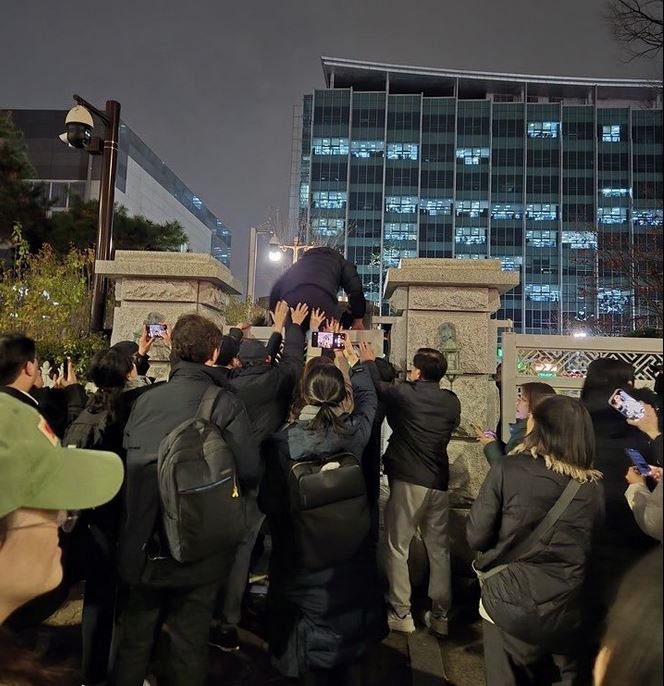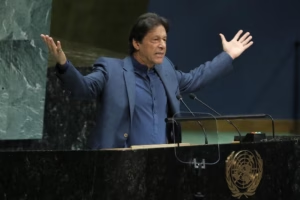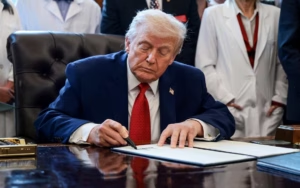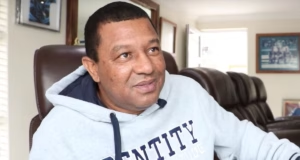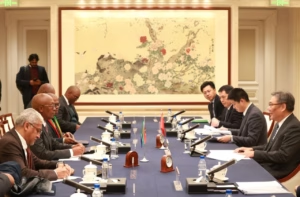South Korean President Yoon Suk Yeol has enacted emergency martial law, accusing the opposition of orchestrating a “rebellion” that threatens national stability. The announcement has sparked a political crisis, with the opposition Democratic Party condemning the move as unconstitutional.
In a televised address, President Yoon claimed that the Democratic Party, which holds a parliamentary majority, has been engaging in actions detrimental to the state. He stated:
“The martial law is aimed at eradicating pro-North Korean forces and to protect the constitutional order of freedom,”
The president’s accusations reflect growing tensions between his administration and the opposition, which he alleges has been paralyzing the government through what he termed “anti-state activities.”
🇰🇷 In South Korea, the people are demanding President Yoon be imprisoned. pic.twitter.com/RhdkLb1x0d
— Update NEWS (@UpdateNews724) December 3, 2024
Following Yoon’s declaration, the Defense Ministry summoned senior military commanders and placed the armed forces on full alert. Reports from the Yonhap news agency indicate that the military has suspended all parliamentary operations, with lawmakers barred from entering the National Assembly.
These actions have escalated concerns about the potential erosion of democratic governance in South Korea. The Democratic Party has responded vehemently, with its leader, Lee Jae-myung, denouncing the martial law decree as a violation of constitutional principles. Lee declared:
“All orders relating to the declaration of martial law by President Yoon are unconstitutional, invalid, and illegal.”
The current crisis highlights deep divisions between Yoon’s ruling People Power Party and the opposition Democratic Party. The president’s approval ratings have declined significantly since he took office in 2022, largely due to political gridlock and allegations of corruption involving his administration.
The Democratic Party recently rejected Yoon’s 2025 budget proposal, insisting on increased government spending to “revive people’s livelihoods and the economy.” In response, the opposition introduced its own budget plan and has also filed impeachment motions against key government officials, including a state auditor and the chief prosecutor.
Adding to the strain, calls for investigations into scandals involving Yoon’s wife and senior officials have intensified, further weakening the president’s position.
The crisis reached a critical juncture when lawmakers gathered in the early hours of the morning to vote on overturning the martial law decree. Of the National Assembly’s 300 members, 190 voted to lift the measure. Despite this decisive move, President Yoon had not responded publicly to the vote as of two hours after the session concluded.
Lee Jae-myung has called upon members of the military and police to disregard the martial law orders. He urged them to:
“Swiftly return to your rightful positions and faithfully carry out your original duties.”
South Korean Defense Minister Resigns Amid Martial Law Controversy
South Korea’s Defense Minister, Kim Yong-hyun, announced his resignation on Wednesday, apologizing for the “confusion and concern” caused by his advice to President Yoon Suk Yeol to declare martial law. The decision, which sparked widespread debate, has become a focal point of political and public scrutiny.
Kim’s Apology and Admission of Responsibility
In a public statement shared with the media, Kim Yong-hyun expressed deep regret over the events that unfolded during the imposition of martial law.
“I take responsibility for all matters related to martial law and have tendered my resignation to the president,” Kim said.
Acknowledging the repercussions of his actions, Kim admitted to advising President Yoon to declare martial law, as reported by Yonhap News Agency. He also stressed that soldiers who executed the measures were merely following his directives.
“All responsibility lies with me,” he said.
Martial Law Lifted but Political Fallout Continues
While martial law has since been lifted and life is reportedly returning to normal, Kim warned of persistent challenges in the domestic political and security landscape. He assured the public that the Ministry of National Defense remains committed to addressing the situation responsibly.
“Martial law has been lifted and the people are returning to their daily lives, but the domestic political and security situations are not easy,” Kim noted.
He added that the ministry would adopt measures to resolve ongoing issues without compromising the nation’s defense capabilities or weakening the military’s readiness.
Opposition’s Reaction and Push for Accountability
The enactment of martial law faced strong backlash from South Korea’s opposition parties and legal experts. Democratic Party leader Lee Jae-myung condemned the decision as unconstitutional and urged law enforcement and military personnel to return to their standard roles.
“This is unconstitutional,” Lee declared, calling for the military and police to resume their normal duties.
Adding to the political turmoil, opposition parties submitted a motion to impeach President Yoon Suk Yeol over the incident. The motion requires a two-thirds majority in parliament to pass, along with the support of at least six of the nine judges on the Constitutional Court. A vote on the motion is anticipated as soon as Friday.

